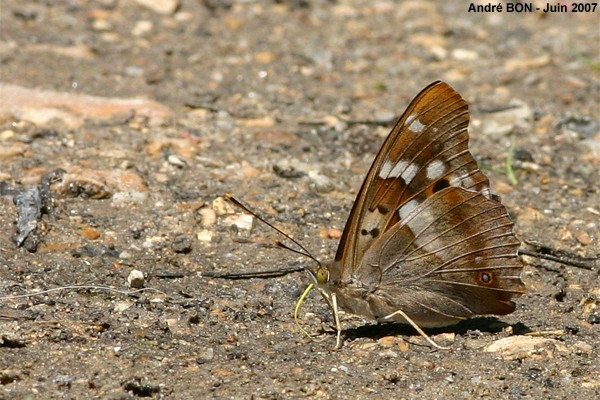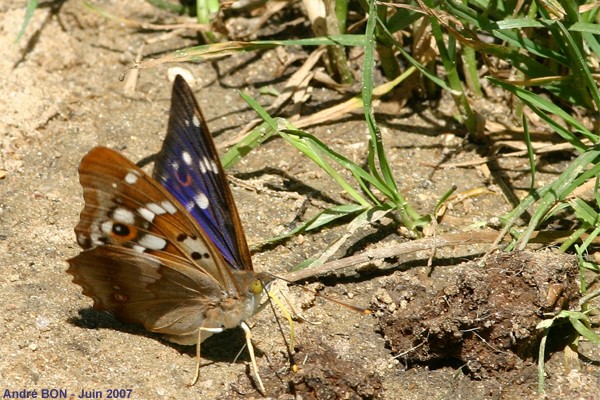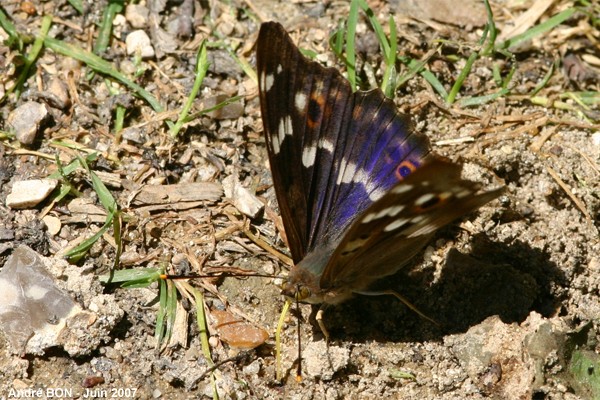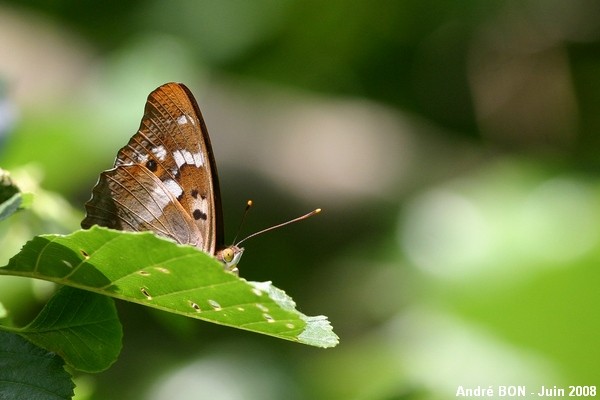



| Lesser Purple Emperor (Apatura ilia (Denis & Schiffermüller, 1775)) |




|
|
Scientific name: Apatura ilia (Denis & Schiffermüller, 1775) Common name: Lesser Purple Emperor French name: Petit Mars changeant Order: Lepidoptera Suborder: Rhopalocera Family: Nymphalidae Subfamily: Apaturinae Wingspan: 64-70 mm Biotope: Oak forests up to a maximum altitude of 1000 m. Geographic area: Europe except Great Britain, Holland and Scandinavia. Flight time: May-June and then August-September Number of generations : 2 Caterpillar: Green with yellow stripes. It bears cephalic horns. Host plant: Poplar (Populus), Willow (Salix). |
There are two different forms, dark brown or yellowish brown (clytie). The male shows a purple sheen on the upper side. The wings changes of colour depending of the angle of view. It differs from the Purple Emperor by the presence of an orange-edged black spot under the hindwing. This butterfly lives near the top of the trees, this makes it difficult to observe. However the male comes down to the ground where it sometimes lands on excrements. It over winters as a caterpillar. |
| [To know more about the Lesser Purple Emperor ] [Next picture] [Top] |

|
Late June 2007 was a good period for the observation of Lesser Purple Emperors. I have mainly seen specimens landed on the ground. |
| [To know more about the Lesser Purple Emperor ] [Next picture] [Previous picture] [Top] |

|
Pictures of butterflies landed on the ground aren't often very nice. I have tried to find the right angle to see the purple sheen. |
| [To know more about the Lesser Purple Emperor ] [Next picture] [Previous picture] [Top] |

|
I have not succeeded in shooting a large purple sheen on wide open wings. |
| [To know more about the Lesser Purple Emperor ] [Previous picture] [Top] |

|
I would have liked to take a picture of the top of the wings to see the blue changing colour. I could have confirmed the identification with the presence of an orange-edged black spot. |